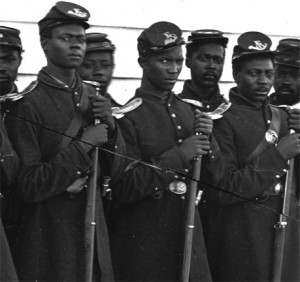New Book Probes an Akan Royal in the U.S. Revolutionary War – A Book Review
 The story of “Jack Cudjo: Newark’s Revolutionary Soldier and First Black Businessman” by Kofi Ayim is not uncommon to the history of the Trans-Atlantic Slave Trade. Jack Cudjo’s story is one of several African slaves, who were captive royals either defeated in war or sold as punishment or in retaliation to their opposition to ruling houses. Kofi Ayim, however, does not seek to narrate a mere historical account. He goes further. The journalist and editor of Amandla newspaper engages the reader in an extensive and lucid research in which, instead of making absolute conclusions, calls for further investigation: and that is the most admirable aspect of Jack Cudjo’s story. The author ’s presentation ishonest, scholarly and rich in information little known to many people of African or Ghanaian de- scent.
The story of “Jack Cudjo: Newark’s Revolutionary Soldier and First Black Businessman” by Kofi Ayim is not uncommon to the history of the Trans-Atlantic Slave Trade. Jack Cudjo’s story is one of several African slaves, who were captive royals either defeated in war or sold as punishment or in retaliation to their opposition to ruling houses. Kofi Ayim, however, does not seek to narrate a mere historical account. He goes further. The journalist and editor of Amandla newspaper engages the reader in an extensive and lucid research in which, instead of making absolute conclusions, calls for further investigation: and that is the most admirable aspect of Jack Cudjo’s story. The author ’s presentation ishonest, scholarly and rich in information little known to many people of African or Ghanaian de- scent.
A chapter by chapter review does more justice to Kofi Ayim’s presentation. The writer begins with a little lecture on Akan names and their accompanying appellations, an ad- mirable aspect of the Akan culture. The short chapter should generate interest among most Akans about their names, their origins and the appella- tions that go with them. It is a learning experience that most of Akans take for granted.
The following chapters delve into how the subject was captured, when he was captured, who captured him, records of his activities as a slave, soldier and a patriarch. Like a scholar seeking answers to his own questions, Kofi Ayim carefully researches every aspect of Jack Cudjo in the various places he is believed to have settled or worked. In the process, several Cudjos with their names spelled differently as Cutjoe, Cuarjo, Cugo, Cujo, etc. are un- earthed. There may or may not be any consanguineous relationship among them but that is what the author is seeking to establish. In so doing the author takes his readers out of the state of New Jersey to Ohio, New York, Connecticut, Florida, Georgia, Pennsylvania and Alabama.
In spite of the obvious lack of narrative fluidity, the fact that Jack Cudjo was a Newarker is pronounced in the meticulous research about his home and properties, business and life as a slave and freeman in the state of New Jersey.
If there is a lack of narrative fluidity, it is because as a research exercise, the author is not staking any claims
on the conclusions he reaches about Cudjo or the Cudjos as the case may be. He is cautious enough not to commit himself to any form of absolutism. And Kofi does this brilliantly by raising questions which should give future researchers food for thought and further examination. In addition are the few tid bits that the author freely provides for information and education. Black kids as lit- tle as 13 years were subjected to incarceration as adults, while preg- nant mothers could be assaulted until they aborted their pregnancies.
But most importantly and very historically relevant is the fact that the book starts in Cudjo’s Gold Coast (Ghana), enters the United States and ends up in the Caribbean. He is able to weave a latent connection be- tween three related locations that are the principal actors in the Trans-Atlantic Slave Trade.









